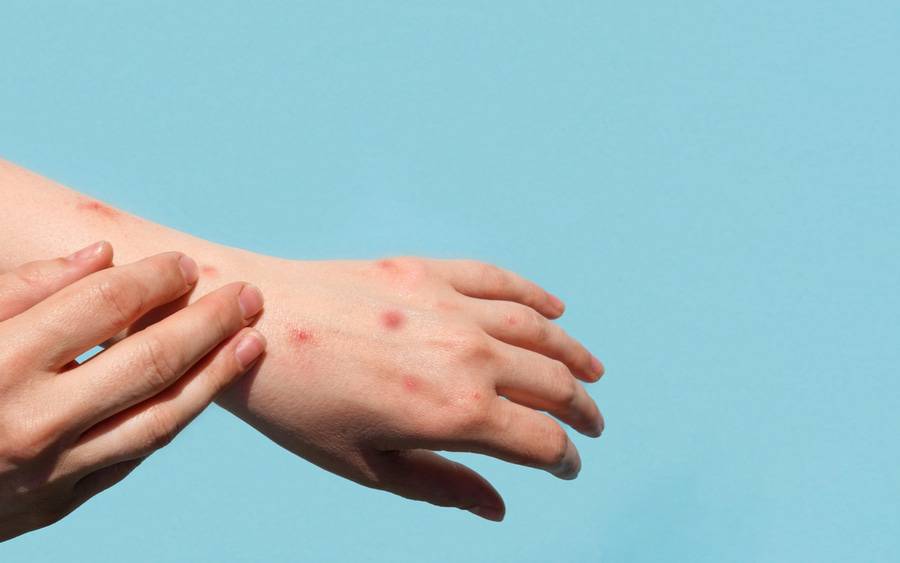What Is Monkeypox? Should I Be Worried?
Scripps is waiting on a new shipment of monkeypox vaccines from the County. We will provide updated information as more vaccines become available. You can also check with the County of San Diego’s website or call 2-1-1 for possible vaccine availability.
Caution urged as cases of infectious disease go up

Caution urged as cases of infectious disease go up
Monkeypox is a rare disease that has been around for decades but has been appearing lately in countries that usually don’t get any cases, including the United States.
The virus is normally not easy to transmit from person to person. However, current monkeypox outbreaks are raising public health concerns because cases are rising and symptoms — including rash, fever and fatigue – can be very unpleasant. The rash can look like pimples and blisters.
Monkeypox is not considered to be a global threat on the scale of COVID-19. Still, the Centers for Disease Control and Prevention (CDC) is monitoring cases of monkeypox in the U.S. and providing guidance to health care providers. In San Diego County, health officials are providing regular updates for the region.
“There is no reason to panic about monkeypox at this time, but it is important to be cautious about any disease with outbreak potential,” says Craig Uejo, MD, chief quality officer and an occupational health physician at Scripps.
“Contact your health care provider if you notice an unusual rash or skin lesions that start in one area, but quickly spread over different parts of the body — especially if you think you may have been exposed to monkeypox or traveled from a country that currently is considered a country of interest for monkeypox,” he says. “It may not be monkeypox, but you will want to rule this out and get to the bottom of what it might be.”
What is monkeypox?
Monkeypox is closely related to the virus that causes smallpox. It is a zoonotic virus, meaning it spreads from animals to humans. It can be transmitted person to person through close contact.
Monkeypox is mainly found in central and west Africa. Cases outside of Africa have usually been associated with international travel or importing animals from areas where the disease is more common.
While it is not considered a sexually transmitted infection, a high number of monkeypox cases during the current outbreak has occurred among men who have sex with men. The CDC stresses that anyone who has close or intimate contact with an infected person can get monkeypox.
How do you get monkeypox?
The virus can spread from person to person in different ways, including:
- Direct contact with contagious rash, scabs, or body fluids
- Respiratory droplets that you breath in during prolonged, face-to-face contact, or intimate physical or sexual contact
- Touching clothing, bedding and other material previously touched by an infected person or animal
- Being scratched or bitten by an infected animal or by eating meat or using products from an infected animal
Pregnant people can spread the virus to their fetus through the placenta.
How do you avoid getting monkeypox?
If you are planning to attend an event or social gathering, consider how much close personal, skin-to-skin contact is likely to occur.
Festivals, concerts and other events where people are fully clothed and unlikely to have skin-to-skin contact are safer, according to the CDC. A rave, party or club where there is minimal clothing and skin-to-skin contact has some risk.
Dr. Uejo suggests, “If you can’t avoid contact with someone who has symptoms, you should try to avoid contact with contaminated material, practice good hand hygiene with frequent hand-washing and wear a mask/gloves/gown when in potential close contact.”
If you have monkeypox, it is important to prevent spreading the disease.
“If you suspect you have monkeypox, avoid close contact with others until a healthcare provider examines you,” Dr. Uejo says. “If you test positive for the virus, isolate until you are fully healed.”
Who is most at risk of serious illness?
Those most at risk of serious illness to death from monkeypox are:
- People with weakened immune systems
- Children under 8 years of age
- People with a history of eczema
- Women who are pregnant or breastfeeding
What are the symptoms of monkeypox?
It usually takes seven to 14 days after exposure for the onset of symptoms, which are similar to smallpox. They include:
- Fever
- Headache
- Muscle aches and backache
- Swollen lymph nodes (a distinguishing feature from smallpox)
- Chills
- Exhaustion
- A rash that appears on the face, mouth, hands, feet, chest, genitals, or anus
Once all scabs have fallen off, a person is no longer contagious.
What are treatments for monkeypox?
Monkeypox typically lasts 2 to 4 weeks and gets better on its own. Over-the-counter pain relievers and fever reducers can help ease symptoms.
The smallpox vaccine offers protection against monkeypox and may be recommended for people who:
- Are in close personal contact with infected people
- May have been exposed to the virus
- May be at increased risk of exposure, including lab workers testing for monkeypox
When to seek medical care
There is a small chance of severe illness from monkeypox.
According to Dr. Uejo, “San Diego County’s Public Health Services will be in close contact with you along with your Scripps provider during your illness.” He recommends seeking medical care quickly if you have the following symptoms:
- Trouble breathing
- New or worsening chest pain
- Stiff neck
- Confusion
- Difficulty speaking or moving
- Loss of consciousness
- Seizures
For more information about monkeypox or the vaccine, visit the San Diego County monkeypox website or call 2-1-1.